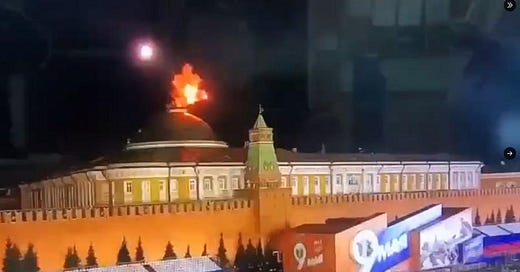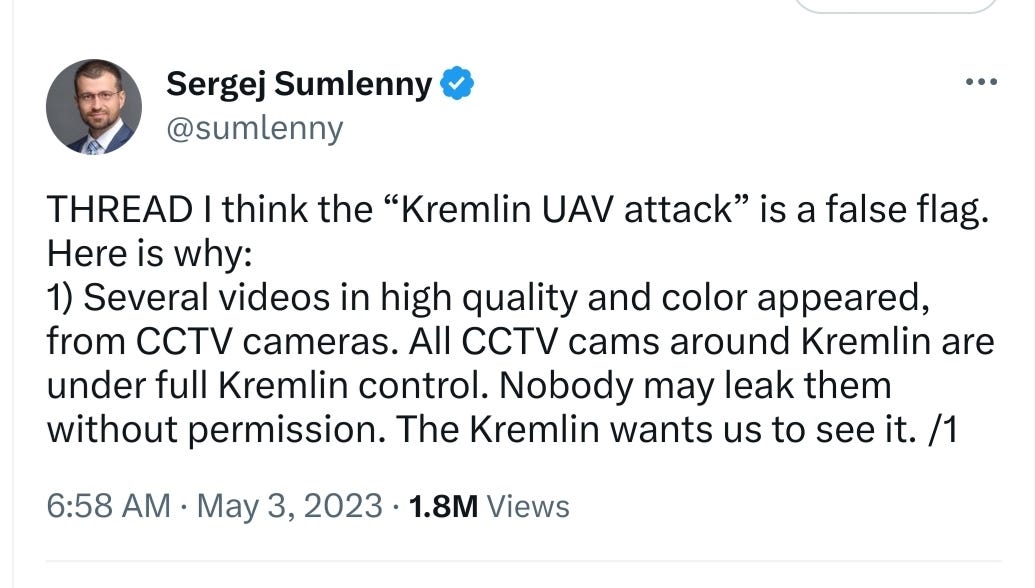Red lines, false flags and expectations
Drone attack on the Kremlin. Possible precursor to retaliation?
It was time yesterday morning to be the change I wanted to see, to break out of a pre-apocalyptic funk and force myself to expect good news, for a change.
And like most days, it began with a wakeup cup of coffee to shuffle through Twitter, Antiwar, Consortium News and Substack, all while listening to Alex Christoforou on Rumble, an alternative news routine that hasn’t changed much since Democracy Now! became MSNBC-Lite during the Obama years.
But my coffee became more placebo than stimulant when my neurotransmitters were jump-started at the news of a drone attack on the Kremlin. A quick browser search for details resulted in page after page of the same headlines from the same national narrative sheet of music.
“Russia alleges Ukraine drone attack on Kremlin to Putin” NPR
“Russia accuses Ukraine of trying to kill Putin with Kremlin drone” The Guardian
“Kyiv denies involvement in alleged Kremlin drone attack” CNN
And so on, and so on…until this:
And why, exactly? If you believe Pentagon mouthpiece Tom Nichols of The Atlantic:
“An attack on the Kremlin would give Putin the rationalization he’s been seeking for some kind of dramatic and murderous action that might not make much military sense, but that would destabilize Ukraine and unsettle the world on the eve of a major Ukrainian counteroffensive…I have no idea what Putin has up his sleeve, but even on his better days, he is prone to strategically idiotic moves. He might try to drag Belarus into the war, he could make more nuclear threats, or he could even order redoubled efforts to kill Zelensky.”
A false flag attack, by either side. Unsettling enough?
A frightening counter narrative would implicate a Ukrainian drone attack, with US logistical support. Moscow is well within range, less than 300 miles, and technically Ukraine could pull it off.
Shit.
Suspected drone attacks by Ukrainian forces on Russia and Russian-occupied territory, including Crimea, have been on the upswing in recent months, with 20 or more tracked by even BBC analysts. So why not now?
Kremlin authorities still point to the attack as a test ahead of scaled-back celebrations of Victory Day on May 9, and why wouldn’t they?
In all probability such battle escalations will continue - funk or no funk, with or without my morning caffeine - at least as long as the Russian Federation continues to revise, not hold fast to the retaliation red lines these witless provocations produce.






